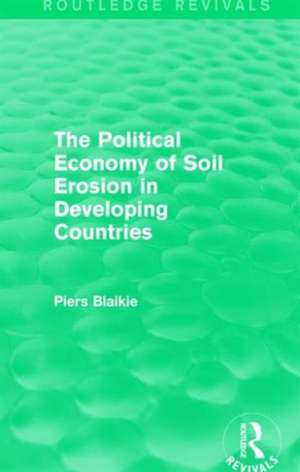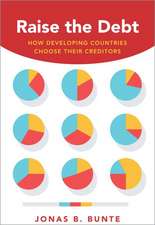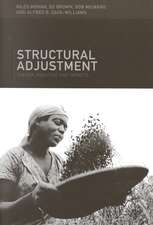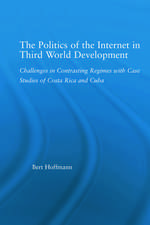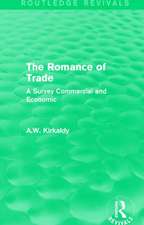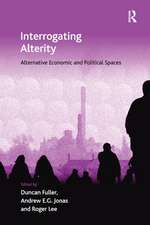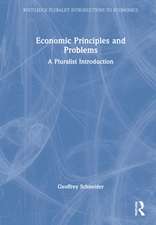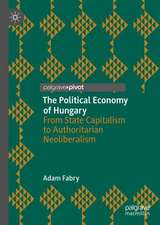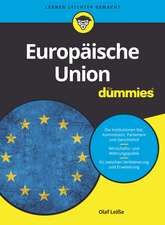The Political Economy of Soil Erosion in Developing Countries
Autor Piers Blaikieen Limba Engleză Hardback – 27 apr 2016
| Toate formatele și edițiile | Preț | Express |
|---|---|---|
| Paperback (1) | 216.07 lei 6-8 săpt. | |
| Taylor & Francis – 18 ian 2018 | 216.07 lei 6-8 săpt. | |
| Hardback (1) | 762.16 lei 6-8 săpt. | |
| Taylor & Francis – 27 apr 2016 | 762.16 lei 6-8 săpt. |
Preț: 762.16 lei
Preț vechi: 1026.22 lei
-26% Nou
Puncte Express: 1143
Preț estimativ în valută:
145.84€ • 152.27$ • 120.70£
145.84€ • 152.27$ • 120.70£
Carte tipărită la comandă
Livrare economică 04-18 aprilie
Preluare comenzi: 021 569.72.76
Specificații
ISBN-13: 9781138638716
ISBN-10: 1138638714
Pagini: 200
Dimensiuni: 138 x 216 mm
Greutate: 0.34 kg
Ediția:1
Editura: Taylor & Francis
Colecția Routledge
Locul publicării:Oxford, United Kingdom
ISBN-10: 1138638714
Pagini: 200
Dimensiuni: 138 x 216 mm
Greutate: 0.34 kg
Ediția:1
Editura: Taylor & Francis
Colecția Routledge
Locul publicării:Oxford, United Kingdom
Cuprins
Acknowledgements; Chapter 1 The Issues Addressed; 1. The problem 2. What this book says 3. Scope and some definitions; Chapter 2 Is soil erosion really a problem?; 1. Conflicting Views 2. How do we judge 3. Social elements in soil erosion; Chapter 3 A review of techniques and policies; 1. A distinction between techniques and policies 2. The techniques themselves 3. A review of conservation policies Chapter 4 Why do polices usually fail?; 1. Introduction 2. The classic or colonial approach to erosion and conservation 3. Foreign aid and conservation programmes 4. Some explanations for failure, and some reassessments 5. Policy implications from black boxes to systems of black boxes; Chapter 5 A new approach — with new problems; 1. Two paradigms 2. The integration of social factors 3. The state, government and administration 4. The expression of class interests in erosion and conservation 5. New problems 6. Family planning and soil conservation programmes — a comparison; Chapter 6 Understanding why soil erosion occurs; 1. Land use and political economy: a scheme; Chapter 7 The exploitation of natural resources and labour; 1. Introduction 2. Land uses, social relations of production and exchange 3. Land users and the world economic system 4. Marginalisation, proleterianisation and incorporation 5. Spatial marginalisation, private property and the commons 6 Steep slopes, history and soil erosion; Chapter 8 The other side of the coin; 1. Introduction 2. Large enterprises using land 3. Accumulation and degradation; Chapter 9 What now?; 1. Overall prospects for soil conservation 2. Strategic choices 3. Practical pessimism; Bibliography; Index
Descriere
First published in 1985. This book examines wide variety of ways in which environmental deterioration, in particular soil erosion, can be viewed and the implicit political judgements that often inform them. Using the context of developing countries, where the effects tend to be more acute due to underdevelopment and climatic factors, this work aims to examine this source of uncertainty and make explicit the underlying assumptions in the debate about soil erosion. It also rejects the notion that soil erosion is a politically neutral issue and argues that conservation requires fundamental social change. This title will be of interest to students of environmental and developmental studies.
